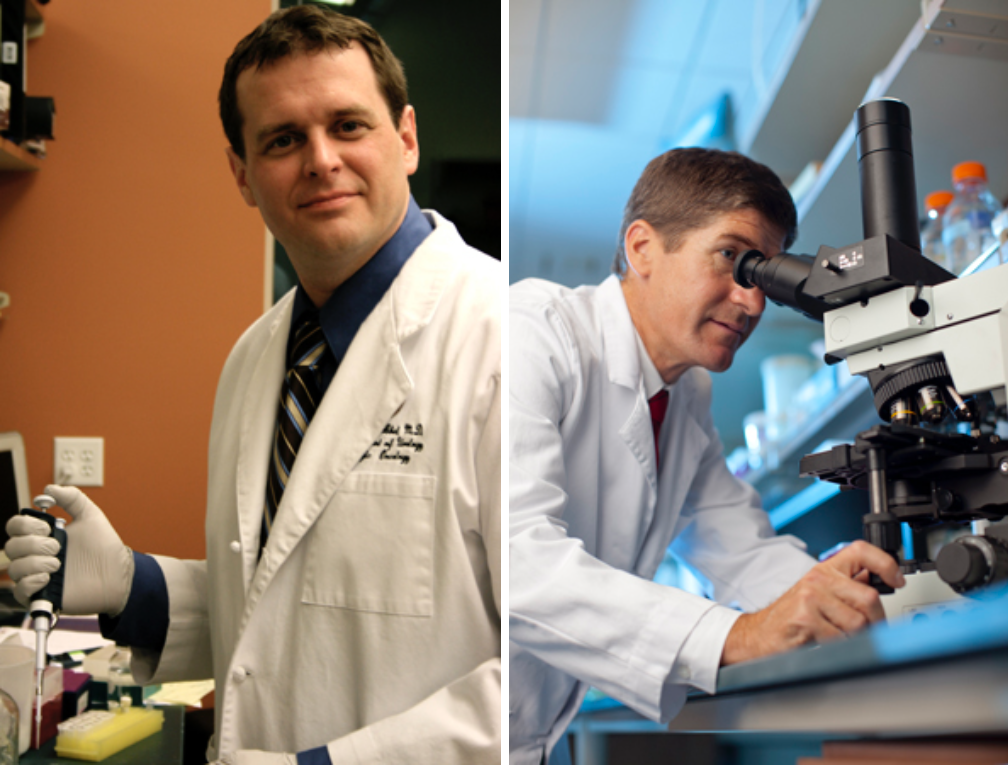The goal of the research experience in the Urologic Oncology Fellowship is to provide the fellow with skills and experience in cancer biology and laboratory science, which will lead to success in their future academic career.
In the two-year research track, fellows are encouraged to develop preliminary data and apply for a career development award through the NIH or other agencies to help strengthen chances of early success in an academic career.

Several investigators in the Department of Urology have productive research laboratories and extramural funding. Fellows may choose a research project and mentor from the Department or within the University of Wisconsin Carbone Cancer Center (UWCCC). The Urologic Oncology research space is primarily based within the UWCCC. The UWCCC has a long tradition of excellence in training physicians and PhD investigators and in conducting research in clinical and basic cancer research.
As an integral part of the UWCCC, the Department of Oncology (The McArdle Laboratory) is one of the nation’s most respected basic science cancer research facilities. Dr. Harold Rusch, the founder and first director of the McArdle Laboratory, and Dr. Paul Carbone established the UWCCC in the 1970s to foster the development of clinically oriented laboratory and patient research in cancer.
As an NCI-designated comprehensive cancer center, we believe the UWCCC represents one of the finest clinical and laboratory research centers in the world with almost $150 million in research funding awarded to our 260 members annually.
The urologic oncology faculty is committed to clinical research to improve patient outcomes in cancer surgery. Large developed databases have been established within the Department to help answer important clinical oncology questions and improve patient care. Statistical and research support are available within the department and cancer center.
Fellows participate in didactic courses in oncology, biostatistics, and ethics as well as weekly multi-disciplinary meetings.
The University of Wisconsin is also home to a School of Public Health and options are available for candidates interested in performing population-based research and obtaining advanced training within those programs.
An additional research year may also be utilized to obtain a Master’s Degree in Public Health or clinical investigation.
Annually, the Urologic Oncology faculty and fellows present basic and clinical projects at the:
American Urological Association (AUA) annual meeting, Society of Urologic Oncology (SUO) Annual Meeting, American College of Surgeons (ACS) Clinical Congress, Society For Basic Urologic Research (SBUR) Annual Meeting, International Kidney Cancer Symposium, North Central Section AUA Annual Meeting, and ASCO Genitourinary Cancers Symposium.
Fellows receive funding and are encouraged to present research findings at national meetings.